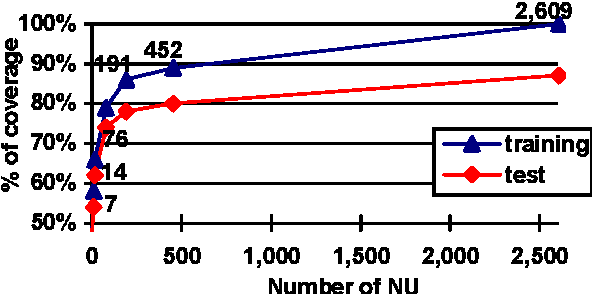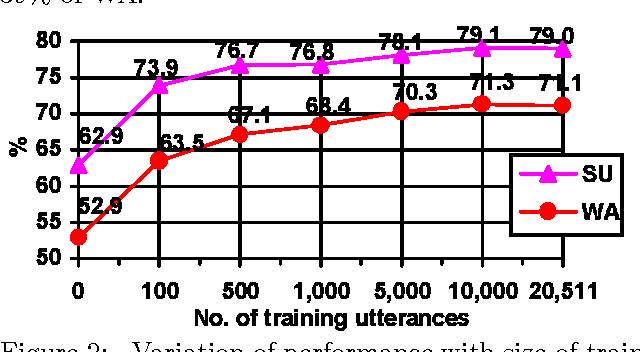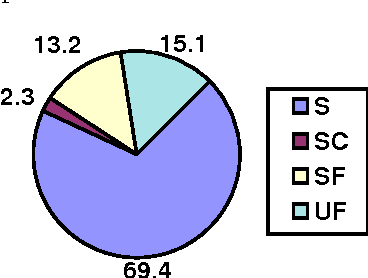Paolo Baggia
CSELT - Turin, Italy
Language Modelling For Task-Oriented Domains
Nov 19, 1997



Abstract:This paper is focused on the language modelling for task-oriented domains and presents an accurate analysis of the utterances acquired by the Dialogos spoken dialogue system. Dialogos allows access to the Italian Railways timetable by using the telephone over the public network. The language modelling aspects of specificity and behaviour to rare events are studied. A technique for getting a language model more robust, based on sentences generated by grammars, is presented. Experimental results show the benefit of the proposed technique. The increment of performance between language models created using grammars and usual ones, is higher when the amount of training material is limited. Therefore this technique can give an advantage especially for the development of language models in a new domain.
* 5 pages, LaTeX, 4 eps figures, uses icassp91.sty, and epsf.tex
Contextual Information and Specific Language Models for Spoken Language Understanding
Nov 19, 1997



Abstract:In this paper we explain how contextual expectations are generated and used in the task-oriented spoken language understanding system Dialogos. The hard task of recognizing spontaneous speech on the telephone may greatly benefit from the use of specific language models during the recognition of callers' utterances. By 'specific language models' we mean a set of language models that are trained on contextually appropriated data, and that are used during different states of the dialogue on the basis of the information sent to the acoustic level by the dialogue management module. In this paper we describe how the specific language models are obtained on the basis of contextual information. The experimental result we report show that recognition and understanding performance are improved thanks to the use of specific language models.
* 6 pages, Latex, uses aclap.sty
Dialogos: a Robust System for Human-Machine Spoken Dialogue on the Telephone
Dec 20, 1996
Abstract:This paper presents Dialogos, a real-time system for human-machine spoken dialogue on the telephone in task-oriented domains. The system has been tested in a large trial with inexperienced users and it has proved robust enough to allow spontaneous interactions both to users which get good recognition performance and to the ones which get lower scores. The robust behavior of the system has been achieved by combining the use of specific language models during the recognition phase of analysis, the tolerance toward spontaneous speech phenomena, the activity of a robust parser, and the use of pragmatic-based dialogue knowledge. This integration of the different modules allows to deal with partial or total breakdowns of the different levels of analysis. We report the field trial data of the system and the evaluation results of the overall system and of the submodules.
Specialized Language Models using Dialogue Predictions
Dec 13, 1996



Abstract:This paper analyses language modeling in spoken dialogue systems for accessing a database. The use of several language models obtained by exploiting dialogue predictions gives better results than the use of a single model for the whole dialogue interaction. For this reason several models have been created, each one for a specific system question, such as the request or the confirmation of a parameter. The use of dialogue-dependent language models increases the performance both at the recognition and at the understanding level, especially on answers to system requests. Moreover other methods to increase performance, like automatic clustering of vocabulary words or the use of better acoustic models during recognition, does not affect the improvements given by dialogue-dependent language models. The system used in our experiments is Dialogos, the Italian spoken dialogue system used for accessing railway timetable information over the telephone. The experiments were carried out on a large corpus of dialogues collected using Dialogos.
 Add to Chrome
Add to Chrome Add to Firefox
Add to Firefox Add to Edge
Add to Edge